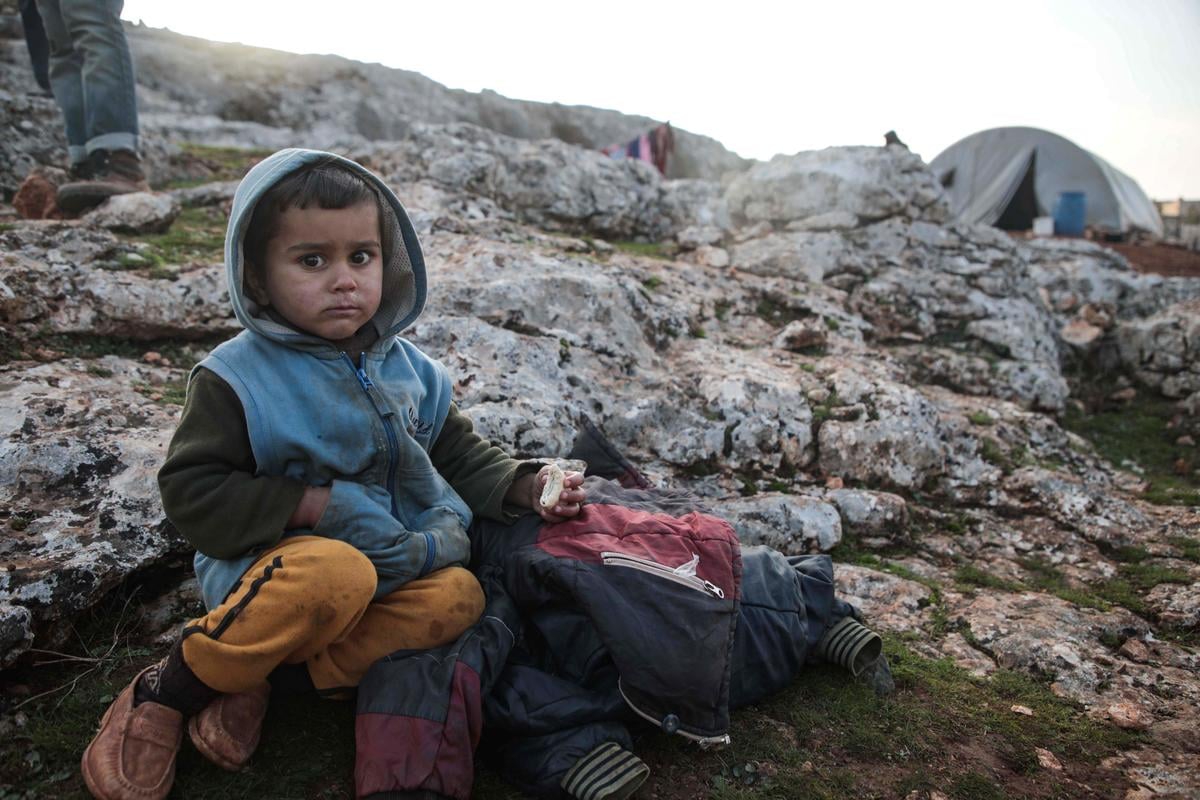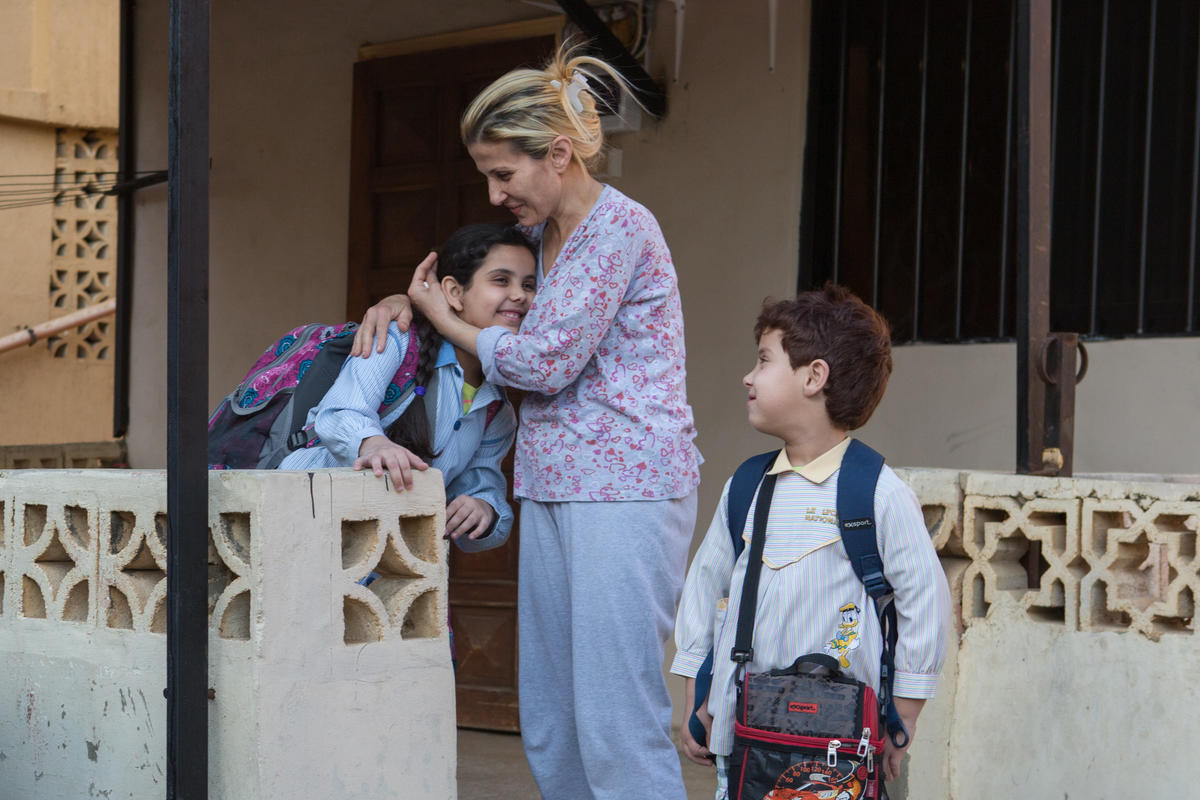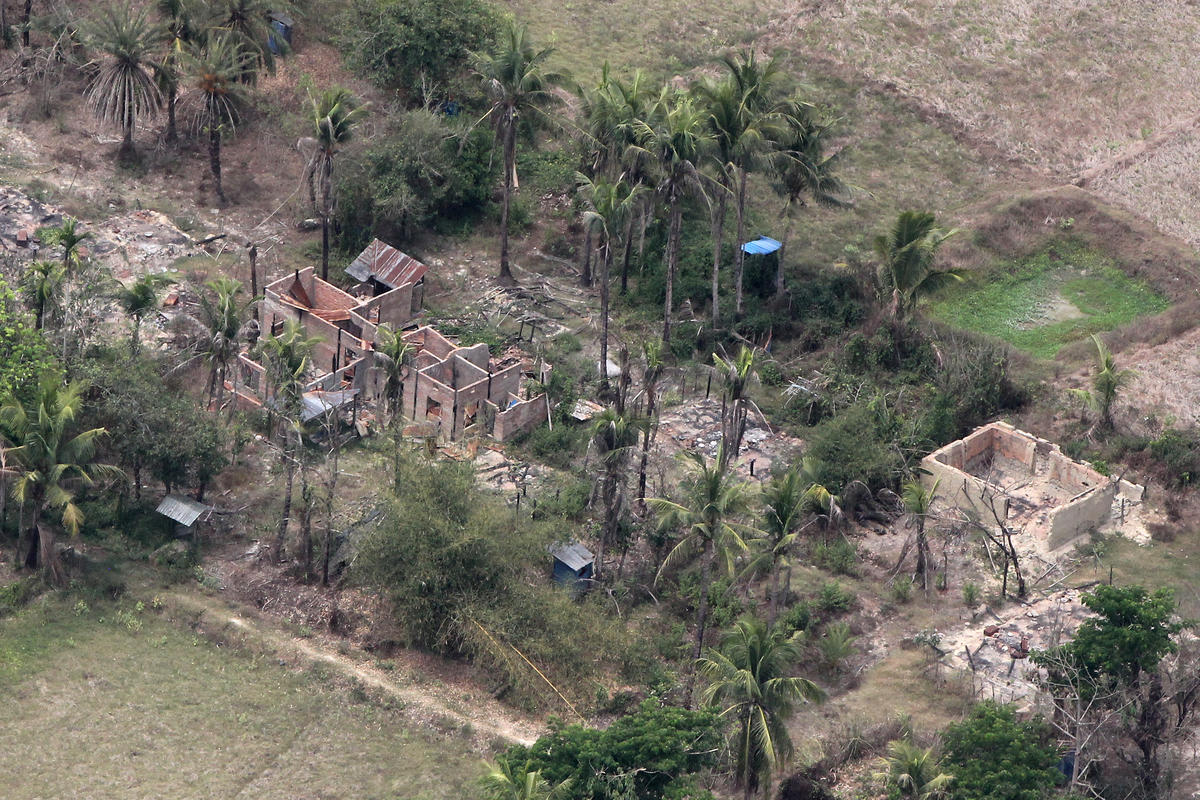Protracted Refugee Situations: UNHCR meeting seeks solutions to end long-term exile of millions of refugees
Protracted Refugee Situations: UNHCR meeting seeks solutions to end long-term exile of millions of refugees

GENEVA, December 10 (UNHCR) - The UN High Commissioner for Refugees António Guterres on Wednesday opened a two-day international dialogue aimed at seeking solutions for millions of people caught up in the limbo of so-called "protracted refugee situations" in which they spend years in exile with no end in sight.
Guterres told some 300 representatives of more than 50 governments and governmental and non-governmental organizations in Geneva's Palais des Nations that the world must do more to resolve the seemingly endless plight of nearly 6 million refugees who have spent years, and sometimes decades, in exile. Worldwide, UNHCR counts at least 30 such long-term refugee situations that have lasted five years or more, excluding Palestinians.
"The burden of hosting these refugees falls almost exclusively to developing states," said Guterres as he opened the second annual High Commissioner's Dialogue on Protection Issues, focusing this year on protracted refugee situations. "It is important to recognize that the international community as a whole has not done enough to share that burden."
Noting that much of the pressure fell on some of the poorest countries in Africa and Asia, Guterres hailed the commitment of Tanzania, whose Prime Minister Mizengo Kayanza Peter Pinda joined him on the podium to deliver a keynote speech. Tanzania has offered local integration, including naturalization and citizenship, to the majority of the Burundian refugees who fled their homeland in 1972 and who have now attained self-reliance and wish to remain in the country. More than 175,000 refugees stand to benefit from this programme, while many other Burundian refugees have opted to repatriate home.
Prime Minister Pinda said it was important that the international community recognize the impact of protracted situations on host countries, including over-exploitation of natural resources and environmental degradation; strains on social services; the spread of small arms and increased insecurity; and health concerns.
"Today, it is an undeniable reality that developing countries are facing shortages and higher costs of social services such as food, water, health and educational facilities," he said. "Thus, any influx of refugees creates more pressure on those facilities, which ultimately increases the unbearable burden that cannot be accommodated by the host country."
Guterres noted that once the media spotlight turns away from refugee emergencies and international attention fades, the displacement can go on unnoticed for years.
In a special UNHCR publication distributed at the meeting, the High Commissioner said that in the "vast majority of protracted cases, the refugees are left behind, obliged to spend the best years of their lives in shabby camps and shanty settlements, exposed to all kind of dangers and with serious restrictions placed upon their rights and freedoms." He added that many of those rights were enshrined in the Universal Declaration of Human Rights, which marked its 60th anniversary on Wednesday.
At Wednesday's meeting he said "refugees have been able to avail themselves of Article 14 of the Declaration, to seek asylum from persecution in other countries. But the real promise of the Declaration lies in its guarantees of equality and non-discrimination, of the rights to education and free choice of employment, of freedom of movement within states and the right to leave and return to one's own state. Refugees in protracted situations may be denied these rights for years."
Describing the problem as one of "enormous proportions," Guterres said many long-term refugees are effectively trapped. They cannot go home because their countries of origin are at war or are affected by serious human rights violations. Only a relatively small proportion have a chance of being resettled in third countries, and in many cases their first asylum country will not allow them to fully integrate or become citizens.
As time passes, the international community loses interest as funding dries up. Essential services such as education and health care stagnate and then deteriorate. Social ills multiply, children suffer and increasingly desperate refugees seek their own solutions, which can include falling prey to human smugglers and traffickers offering them a better life elsewhere.
Protracted situations are many and varied. There are refugees in traditional camps, where there may be few prospects for lasting solutions. Others may be substantially self-reliant, but lack a legal basis for staying in their countries of asylum. And there are increasing numbers of urban refugees who will find it very difficult to return and reintegrate in their homelands, particularly in rural areas. Moreover, those in urban settings are often without an effective support structure or legal right to be there.
The High Commissioner also noted that protracted exile creates its own set of secondary problems, including a heightened risk of statelessness. Lacking the ability to document identification, refugees can find themselves unable to prove their place of birth, parentage and previous residence.
Guterres said it was essential that the international community recognized the need for political resolve by all stakeholders to bring such situations to an end.
"We need to ensure that the durable solutions approach to protracted situations is comprehensive," he said. "This does not mean that all situations will emphasize voluntary repatriation, local integration and resettlement equally. It means that for each situation, the appropriateness of all three solutions must be considered. In some cases, a comprehensive response will be a matter of phasing solutions. In others, it may require concurrent deployment of different solutions for different components of the population."








